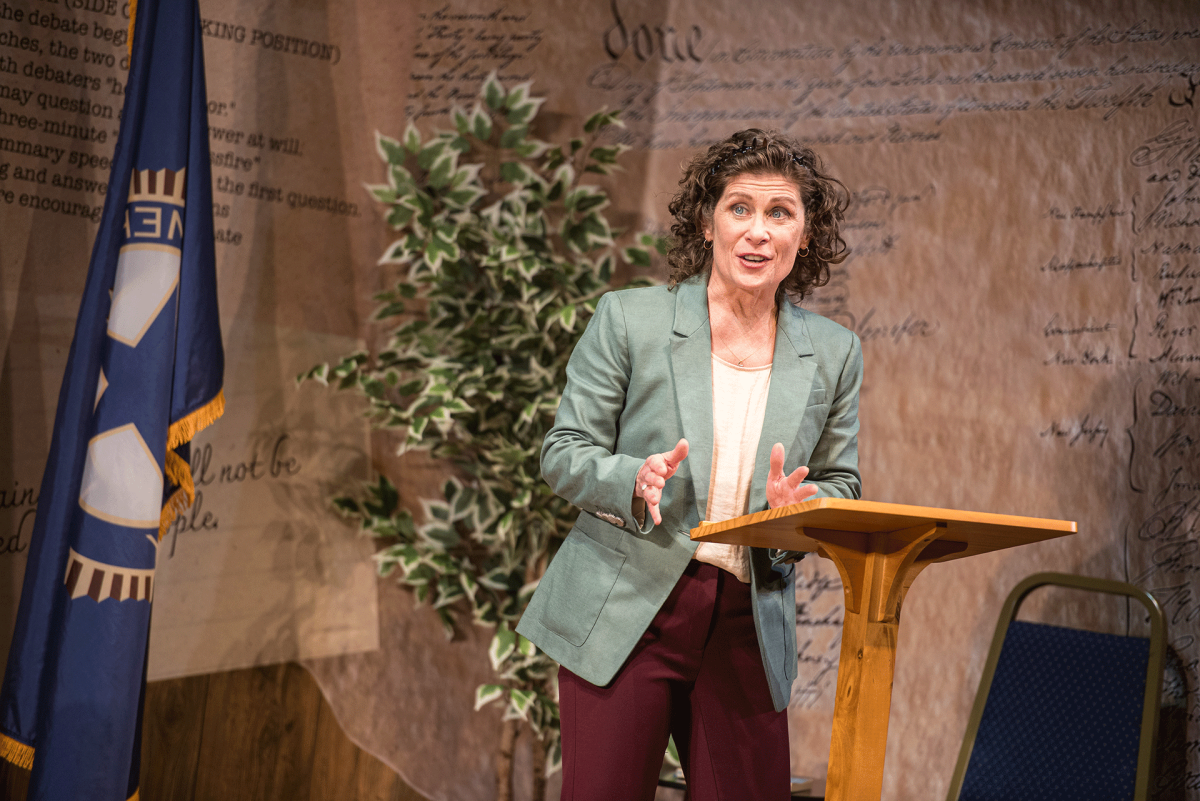Humans are similar to chimps. Chimps are intelligent and violent, so are humans. Male chimps rule over females and often battle out their problems. We have continuously had male presidents and been involved in many wars. Andrew Rohn and Catherine Capellaro, who are known for their comedic musicals such as “Temp Slave” and “Walmartopia,” explore these human and animal traits in their newest show, an extension of their play “Blasphemy!” called “In the Beginning.” The play makes fun of creationism and discusses evolution through the eyes of Adam and Eve in the Garden of Eden.
Adam begins by telling the story to his second wife, Eve, and sons, Cain and Abel, saying he and his first wife had some problems. The setting then jumps to the Garden of Eden where Adam and Eve — the first one — are quite different from one another. While Adam is very much human, making clothes, fashioning tools and also speaking with God, Eve acts more like an animal than a human, which Adam is quick to reprimand her for. The couple gets in various fights over why Eve needs to stand up straight and why she can’t climb trees — Adam tells her because it is God’s wish for her to act like a human. The play focuses on their lives, Adam trying to listen to God and show is his respect and admiration by keeping things in order and Eve asking questions and being skeptical. The second act brings a little more to the table with Eve discovering lies Adam has told and falling in love with a mutated fish.
Even though “In the Beginning” is proud to call itself an evolutionary musical comedy, it was more musical than comedy. The first act was slightly boring and uneventful with scenes and songs about making “things” and whether God was human or an animal. While these songs and scenes were not the most entertaining, they are, however, essential for the audience to understand the much better, more interesting and funnier act two.
While the show wasn’t as funny or interesting as to be expected, the actors themselves were unbelievable. Aside from Adam, Eve One, Eve Two, Cain and Abel, there were no other humans, and, with the cast on the larger side, many actors were left being animals. All of the investigating and animal watching they must have done was quite obvious through their very lifelike imitation of whichever animal they were portraying. The apes are a great example of this research tactic. There were three apes, two females and one male, which for the most part, were sitting atop a tree. Whenever they spoke, their English had an undertone of what apes actually sound like to humans — the “oooo” and “ahhhh” were still there, but incorporated into their speech. They also moved and acted just like an ape would, down to how they eat and chew a banana.
Eve also did a wonderful job, showing she must also have studied. Struggling with an internal battle between human and animal, Eve had the elegant swiftness and gliding on stage of a beautiful dancer but the hunched over posture of an ape, which truly convinced any audience member of her distress and confusion.
Through a different twist on the story, the writers and directors of this show extend their hands to all of those who are curious about evolution and human ancestors.
“Evolution is a wondrous process, something worth singing about,” Capellaro and Rohn state in their program. “We dedicate this show to our children, who deserve to learn the truth about our origins, and to our endangered cousins, who know how to throw a party.”














